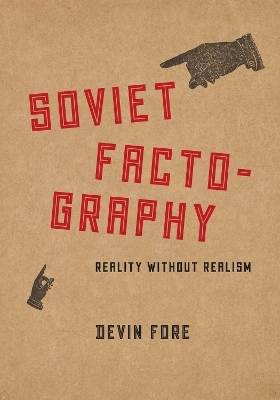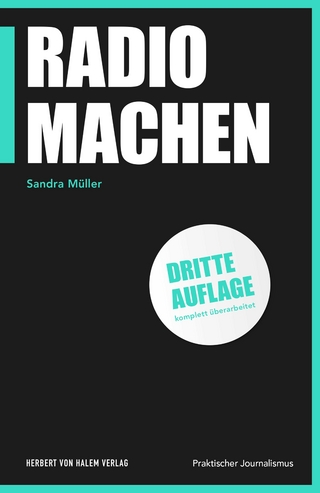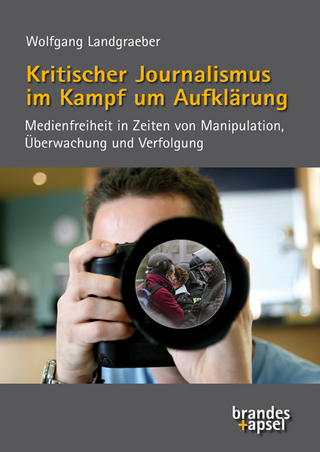
Soviet Factography
Reality without Realism
Seiten
2024
University of Chicago Press (Verlag)
978-0-226-23486-1 (ISBN)
University of Chicago Press (Verlag)
978-0-226-23486-1 (ISBN)
A study of Soviet factography, an avant-garde movement that employed photography, film, journalism, and mass media technologies.
This is the first major English-language study of factography, an avant-garde movement of 1920s modernism. Devin Fore charts this style through the work of its key figures, illuminating factography’s position in the material culture of the early Soviet period and situating it as a precursor to the genre of documentary that arose in the 1930s. Factographers employed photography and film practices in their campaign to inscribe facts and to chronicle modernization as it transformed human experience and society. Fore considers factography in light of the period’s explosion of new media technologies—including radio broadcasting, sound in film, and photo-media innovations—that allowed the press to transform culture on a massive scale.
This theoretically driven study uses material from Moscow archives and little-known sources to highlight factography as distinct from documentary and Socialist Realism and to establish it as one of the major twentieth-century avant-garde forms. Fore covers works of photography, film, literature, and journalism together in his considerations of Soviet culture, the interwar avant-gardes, aesthetics, and the theory of documentary.
This is the first major English-language study of factography, an avant-garde movement of 1920s modernism. Devin Fore charts this style through the work of its key figures, illuminating factography’s position in the material culture of the early Soviet period and situating it as a precursor to the genre of documentary that arose in the 1930s. Factographers employed photography and film practices in their campaign to inscribe facts and to chronicle modernization as it transformed human experience and society. Fore considers factography in light of the period’s explosion of new media technologies—including radio broadcasting, sound in film, and photo-media innovations—that allowed the press to transform culture on a massive scale.
This theoretically driven study uses material from Moscow archives and little-known sources to highlight factography as distinct from documentary and Socialist Realism and to establish it as one of the major twentieth-century avant-garde forms. Fore covers works of photography, film, literature, and journalism together in his considerations of Soviet culture, the interwar avant-gardes, aesthetics, and the theory of documentary.
Devin Fore is professor at Princeton University and an editor of the journals October and New German Critique. Fore is the author of Realism after Modernism: The Rehumanization of Art and Literature. He published articles in New German Critique, October, Configurations, and Grey Room and has also translated many texts from German and Russian.
Introduction: Factography’s Fortunes
Chapter One: The Facts against the Image
Chapter Two: Overcoming the Delay
Chapter Three: Paradigms of Factography
Chapter Four: The Fatal Question
Afterword: Contact Stratum
Acknowledgments
Notes
Index
| Erscheinungsdatum | 27.09.2024 |
|---|---|
| Zusatzinfo | 69 halftones |
| Sprache | englisch |
| Maße | 178 x 254 mm |
| Gewicht | 993 g |
| Themenwelt | Kunst / Musik / Theater ► Fotokunst |
| Kunst / Musik / Theater ► Kunstgeschichte / Kunststile | |
| Sozialwissenschaften ► Kommunikation / Medien ► Journalistik | |
| Sozialwissenschaften ► Kommunikation / Medien ► Medienwissenschaft | |
| ISBN-10 | 0-226-23486-X / 022623486X |
| ISBN-13 | 978-0-226-23486-1 / 9780226234861 |
| Zustand | Neuware |
| Informationen gemäß Produktsicherheitsverordnung (GPSR) | |
| Haben Sie eine Frage zum Produkt? |
Mehr entdecken
aus dem Bereich
aus dem Bereich


